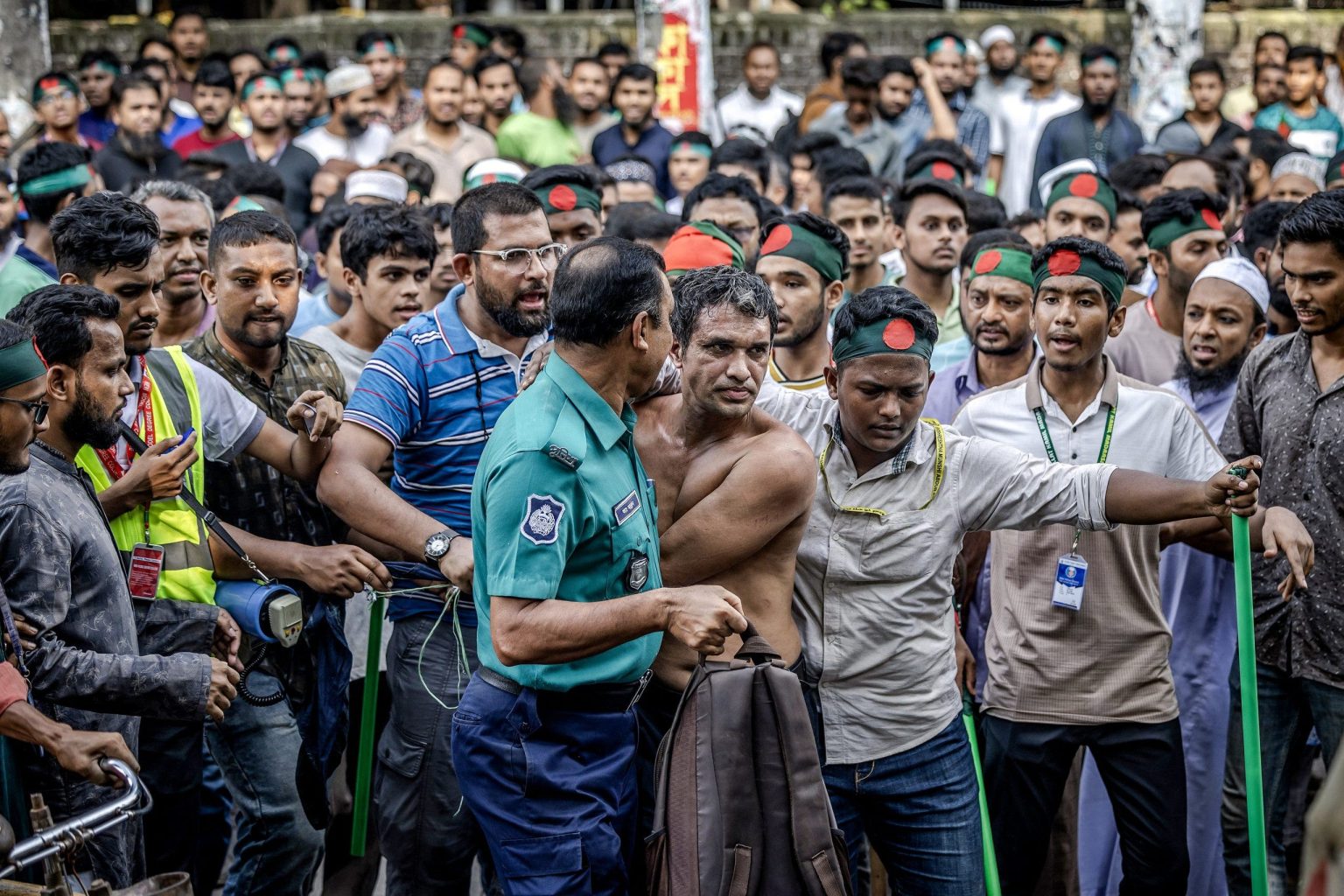Members of minority groups in Bangladesh have faced violence and mistreatment following the collapse of the government earlier this month. Violence, including murder and the burning down of minority-owned businesses, places of worship, and residences, has been a major issue since former Prime Minister Sheikh Hasina’s government was overthrown after violent protests. Bangladesh is 90% Muslim, with Hindus and Buddhists making up the rest of the population. Hindu minority members like Sathya have revealed cases of mistreatment under the Hasina government, such as land-grabbing of Hindu homes and temples. The situation has worsened since Hasina fled the country, with an increase in attacks on Hindu-owned locations.
Minorities across different religions in Bangladesh are facing persecution, including the Ahmadiya sect within the Muslim community. The Ahmadiya sect has been targeted by the Sunni majority, with members like Ali expressing concern over the increasing attacks on religious minorities. Despite the presence of a hotline for Hindus to report targeting, there have been complaints of no response or assistance from the government. Rajarshi highlighted the lack of safety for non-Sunni groups in Bangladesh and questioned the country’s commitment to independence and religious freedom. The situation is particularly severe for Christians, with Bangladesh ranking high in persecution levels, leading to restrictions, discrimination, and attacks on Christian converts.
Indian Prime Minister Narendra Modi has reassured support for a democratic, stable, and peaceful Bangladesh. The Indian government has advocated for the protection and safety of Hindus and minorities in Bangladesh, expressing concern over the prevailing situation. The United States has been urged to ease criticism of the Bangladeshi government, with plans for sanctions being put on hold. Despite concerns over democracy and human rights in Bangladesh, the State Department maintains its engagement with the country. Hasina’s Awami League party, which has faced accusations of authoritarian rule, was re-elected in January, prompting nationwide protests against its continued rule and economic policies.
Student protests against the Awami League’s rule led to the resignation and fleeing of Hasina, creating an interim government ahead of fresh elections in November. Humanitarian and Nobel Peace Prize laureate Professor Muhammad Yunus was appointed as the chief adviser to the interim government. The student protesters plan to create a new party to contest the elections and challenge the two-party dominance that has prevailed in the country. The movement aims to bring about structural reforms and create a new Bangladesh free from fascist or autocratic leadership. Despite the challenges faced by minorities in Bangladesh, there is hope for change through peaceful protests and political reform.


